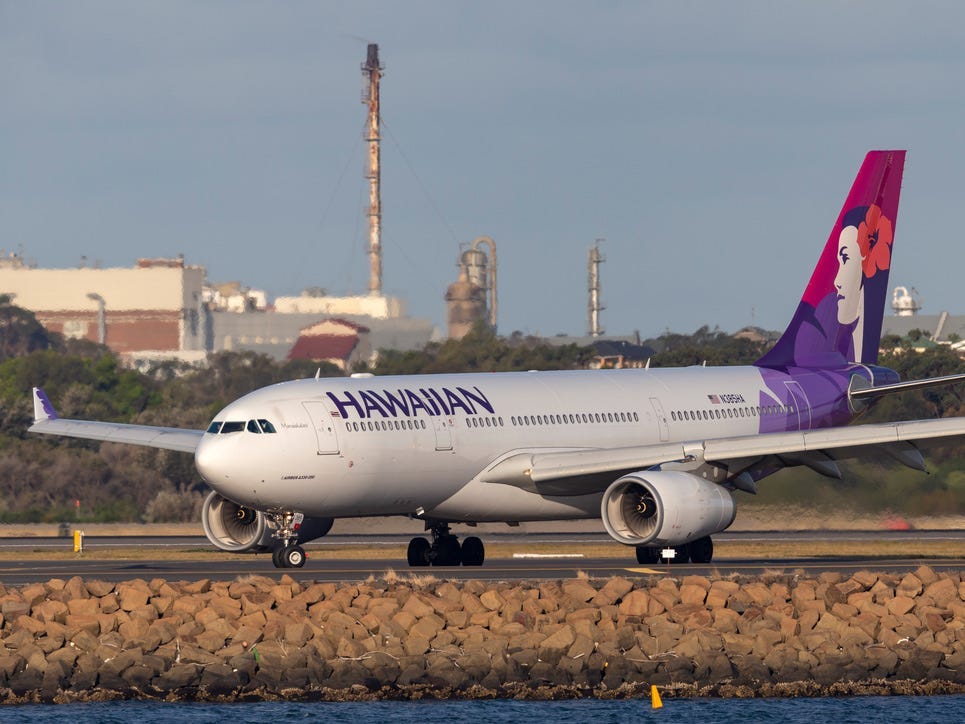- Elon Musk's SpaceX has signed deals with two US airlines to provide Starlink WiFi service on passenger planes.
- Delta Air Lines has conducted "exploratory" Starlink tests, CEO Ed Bastian confirmed to the Wall Street Journal.
- Starlink's proximity to Earth and speed make it an attractive option for airlines that want better WiFi options.
SpaceX, founded by billionaire entrepreneur Elon Musk, wants to enter the aviation sector by providing fast and reliable inflight WiFi using its string of Starlink satellites.
On Thursday, semi-private regional carrier JSX announced it will be the first-ever airline to use Starlink satellites for inflight WiFi. The US-based carrier placed an order to equip 100 jets with the technology, with the first taking off this year.
Shortly after the announcement, Hawaiian Airlines revealed it has also chosen Starlink to provide its internet service, becoming the first major US carrier to opt for Musk's network of satellites onboard its planes. The carrier said Starlink will be fitted onto the airline's Airbus A330, A321neo, and incoming Boeing 787-9 aircraft, and is set to debut in 2023.
"We waited until technology caught up with our high standards for guest experience, but it will be worth the wait," Hawaiian Airlines CEO Peter Ingram said Monday.
Both JSX and Hawaiian's new Starlink WiFi will be free for passengers, according to both carriers. However, Hawaiian said its Boeing 717 planes that fly inter-island routes will not have the service.
Delta Air Lines has also done "exploratory" tests of Starlink, CEO Ed Bastian revealed to the Wall Street Journal in mid-April. In 2018, Bastian told the WSJ that WiFi service should be complementary on planes and actually offered free internet on certain flights during a two-week trial in 2019.
Musk's Starlink internet service is a string of about 2,000 low-orbiting satellites, which the company calls a "megaconstellation." The technology is particularly suited to bring connectivity to remote places where connection to the internet is unreliable or unavailable, according to Space X.

According to space exploration and astronomy news website Space.com, because the satellites are networked together and are close to Earth, they can beam large amounts of data to any place on the planet faster than fiber-optic cables.
The information moves 47% faster than cables because it moves through a vacuum in space, Insider's Dave Mosher reported, and its proximity to Earth reduces the latency, or lag time.
Airline executives have shown enthusiasm about Starlink's promised speed and reliability, with Ingram saying the service will be the "best connectivity experience available in the air." JSX CEO Alex Wilcox said Starlink will provide faster internet on planes than available at home.
Jonathan Hofeller, SpaceX's vice president of Starlink commercial sales, said passenger expectations for inflight connectivity "has changed faster than the technology has changed," CNBC reported, giving Starlink an opportunity to fulfill a market need.
SpaceX has been seeking regulatory approval from the Federal Communications Commission to deploy Starlink on commercial aircraft and shipping vessels, having tested the WiFi on Gulfstream private jets and military planes, Reuters reported.
In June 2021, Musk tweeted that the technology needs to be approved for all plane types, but is focusing on the Airbus A320 and Boeing 737 because they "serve most number of people."
So far, the FCC has approved testing of Musk's aviation-focused technology on passenger jets, according to the New York Post, though the Federal Aviation Administration still needs to approve the installation of Starlink technology on airliners.
